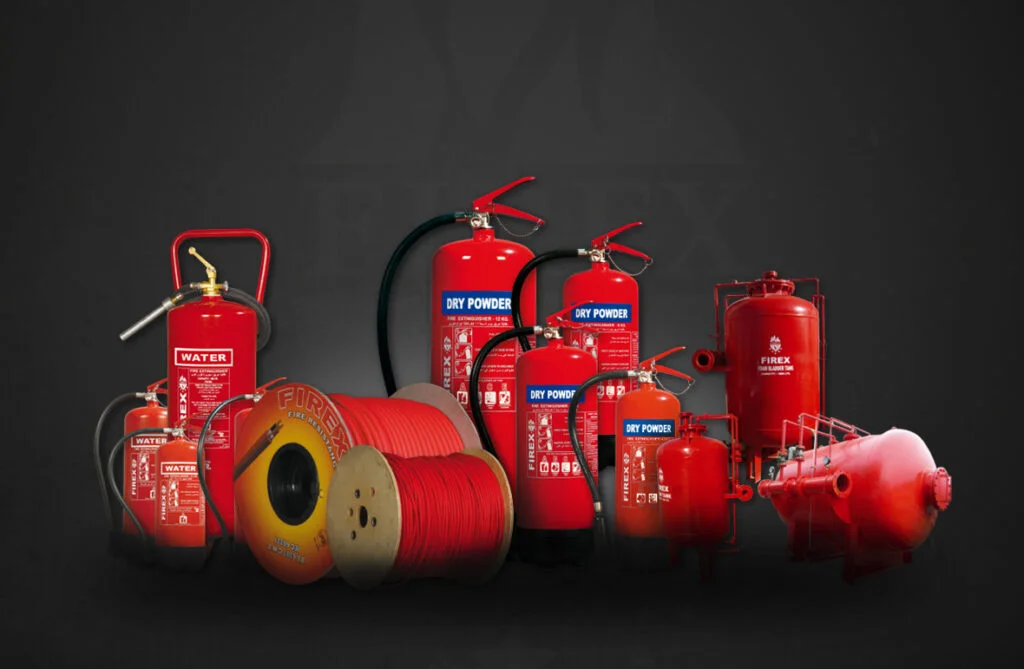Fire safety is one of the most important yet overlooked aspects of building management in Uganda. Whether you run a small shop in Kampala or manage a large industrial facility, choosing between portable and fixed fire-suppression systems can be confusing.
Let’s break down what each system means, when to use them, and how to make the right choice for your business or property.
What Exactly Are Portable vs Fixed Fire-Suppression Systems?
Before comparing them, let’s define both systems clearly.
Portable fire-suppression systems
Portable systems refer to movable fire extinguishers or mobile suppression units that can be carried or wheeled to a fire. These include dry chemical, foam, or CO₂ extinguishers commonly seen in offices, schools, and small businesses. They’re easy to install, simple to operate, and ideal for first-response control.
Fixed fire-suppression systems
Fixed Fire-Suppression Systems in Uganda are permanently installed systems integrated into a building’s infrastructure. They include sprinklers, water mist systems, gas suppression, foam systems, and detection sensors connected to a central control. Fixed systems are designed to detect and suppress fires automatically or semi-automatically, protecting high-risk areas such as factories, data centers, or storage facilities.
Why Should You Care About Choosing the Right Fire-Suppression System?
The right system ensures you get maximum protection without overspending. Choosing poorly can mean either under-protecting your assets or investing more than necessary. Factors like risk level, building type, budget, and maintenance capabilities determine what’s best for you.
How Do You Know When a Fixed System Is Needed?
When to choose a fixed fire-suppression system
- High-risk zones: Data centers, server rooms, manufacturing plants, fuel storage, or cooking areas.
- High-value assets: Where even a short fire interruption could cause big losses.
- Regulatory compliance: Certain Ugandan regulations or insurance policies require fixed systems for specific facilities.
- Unmanned areas: When fires could break out at night or when no one is around to operate extinguishers.
When to choose portable extinguishers
- Low-risk environments: Offices, shops, schools, or homes.
- Limited budgets: Easier and cheaper to acquire and maintain.
- Short-term premises: Where permanent installation isn’t practical.
Why not both?
Many Ugandan businesses use both portable and fixed systems. Portable extinguishers handle small fires quickly, while fixed systems protect critical zones automatically.
What Are the Pros and Cons of Fixed Fire-Suppression Systems in Uganda?
Advantages
- Automatic activation: Fires are detected and suppressed even without human presence.
- Comprehensive coverage: Ideal for large or complex structures.
- Increased safety compliance: Often meets or exceeds insurance and building safety requirements.
- Reduced downtime: Limits damage, ensuring faster business recovery.
Disadvantages
- Higher upfront cost: Design, installation, and maintenance are more expensive.
- Complex servicing: Regular inspections and professional maintenance are required.
- Installation challenges: Older buildings may need infrastructure upgrades for installation.
What Makes Uganda’s Context Unique for Fire Suppression?
Uganda’s building standards, water supply, and local infrastructure influence fire-suppression choices.
- Water and power reliability: Sprinkler or water-mist systems need a steady supply. In some areas, gas or foam systems are more reliable.
- Building design: Older or smaller premises may find portable extinguishers easier to implement.
- Local expertise: Always work with a trusted Ugandan supplier who offers installation and maintenance support.
- Budget and accessibility: Smaller businesses can start with portable systems and upgrade as risks or requirements evolve.
How to Compare and Choose: A Practical Checklist
- Identify fire hazards: Map high-risk areas like kitchens, electrical rooms, or warehouses.
- Evaluate risk level: Match system type to risk — fixed for high-risk, portable for low-risk zones.
- Plan your budget: Consider both initial costs and ongoing maintenance.
- Check compliance: Confirm if local or insurance requirements demand a fixed system.
- Select a reliable provider: Choose a professional company in Uganda experienced in both fixed and portable systems.
- Combine approaches: Hybrid systems (portable + fixed) often offer the best protection.
- Schedule maintenance: Test and inspect all systems regularly.
- Train your staff: Ensure everyone knows how to use extinguishers and understands the fixed system zones.
When Are Fixed Fire-Suppression Systems in Uganda Absolutely Necessary?
You should install a fixed fire-suppression system if:
- You manage critical equipment such as servers, switchboards, or control rooms.
- You handle flammable materials or chemicals.
- You operate in a remote or unmanned site.
- You want to meet strict safety and insurance requirements.
In such cases, fixed systems aren’t just an upgrade — they’re essential for safety, compliance, and peace of mind.
Frequently Asked Questions (FAQ)
Q: Can I rely only on portable extinguishers?
A: You can if your fire risk is low and your staff is trained. But for high-risk environments, fixed systems provide faster, automatic response.
Q: Are fixed fire-suppression systems expensive?
A: They cost more upfront but can save you money long-term by preventing severe damage or downtime.
Q: How often should fixed systems be maintained?
A: Ideally, once or twice a year depending on the system type and manufacturer’s recommendations.
Q: Do I still need portable extinguishers if I have a fixed system?
A: Yes. Portable extinguishers allow for immediate manual intervention before a fire spreads.
Q: What types of fixed systems are available in Uganda?
A: Common types include sprinkler systems, gas-based suppression, foam systems, and wet-chemical units for kitchens.
Conclusion
Choosing between portable and Fixed Fire-Suppression Systems in Uganda depends on your environment, risks, and resources. Portable systems are perfect for quick manual response, while fixed systems deliver automatic protection for critical areas.
For many Ugandan businesses, a combination of both ensures the most complete safety coverage.
At OxyPlus Uganda, we provide both portable and fixed fire-suppression solutions tailored to your facility’s needs. Our experts can assess your site, recommend the right system, and ensure your property is always protected.

